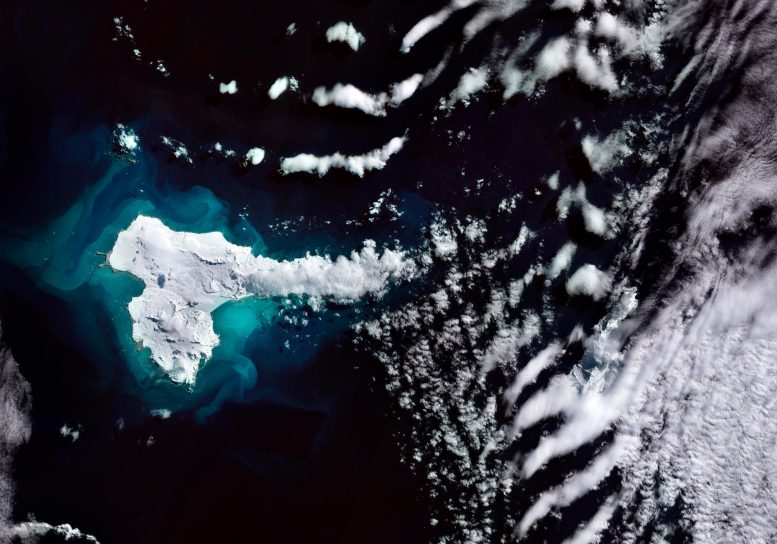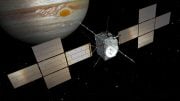
The Copernicus Sentinel-2 mission captured this view of Elephant Island in Antarctica in February 2023, revealing its icy terrains, prominent peaks, and varied marine environment. Credit: Contains modified Copernicus Sentinel data (2023), processed by ESA
This rare, almost cloud-free view of the remote Elephant Island in Antarctica was captured by the Copernicus Sentinel-2 mission in February 2023.
Lying in the Southern Ocean about 150 miles (250 km) northeast off the tip of the Antarctic Peninsula, Elephant Island is one of the outermost of the South Shetland Islands. It owes its name to both the sighting of elephant seals along its shores and its elephant-like shape, here the ‘trunk’ is partially covered by clouds.
This mountainous island is covered by ice. The highest peaks are Mount Pendragon, which reaches around 3,200 feet (970 m), visible on the southern end, and, moving northeast, Mount Elder, which reaches around 3,080 feet (945 m).
North of Mount Elder, the wide Endurance Glacier can be seen in the center of the image. It is the main discharge glacier on the island and drains to the south and into the Weddel Sea. Thin sea ice, visible in light blue in front of the calving front, separates the glacier terminus from the open ocean waters.
The variations in the color of the waters surrounding the island are due to sediment eroded by the flow of ice and carried by meltwater into the ocean. Small icebergs can be spotted, particularly off the western coast, as little white dots speckling the water. The white lines along the island coasts are the result of big waves crashing against the rocky steep cliffs.
Dramatic changes in Antarctica’s ice have become synonymous with the climate crisis. The continued observations from satellites are key to surveying the remote polar regions. Satellites can monitor the melting ice sheets caused by rising temperatures and the subsequent rising of sea levels, as well as the impact on global ocean currents caused by the increased influx of freshwater into the ocean. This is paramount to improving our understanding of the Earth system and to providing evidence on the impact of climate change.









Be the first to comment on "Antarctica’s Majestic Elephant Island Captured From Space"